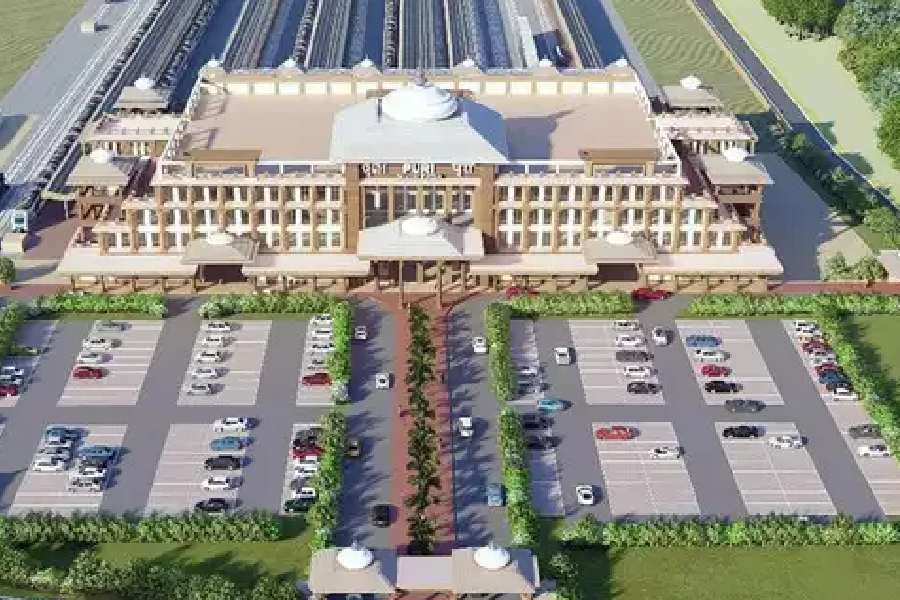The redeveloped Puri railway station will reflect the traditional architectural features of the famed Jagannath Temple and have all modern amenities for the convenience of passengers, according to the firm engaged for the work.
Giving an update on the station redevelopment project, the firm said the work is expected to be completed by July next year.
The station is being rebuilt in accordance with the Kalinga architecture that originated in the fourth century BC.
"Since the iconic Jagannath Temple is a living example of Kalinga style of architecture, the exterior of the station will reflect that," Prateek Rath of Rath Architectonic said.
The Indian Railways awarded the station re-development contract to Rath Architectonic in July 2022 and the construction work was started in January 2023.
Manonjaya Rath of the firm said, "In Kalinga architecture, basically a temple is made in two parts, a tower and a hall. The tower is called 'deula' and the hall is called 'jagmohan'.... The design of the Puri railway Station reflects the concept of 'deula' at the entrance and 'jagmohan' in the concourse at the rear, which is a 115-metre-by-30-metre space with a height of 18 metres." He said local materials and natural stone used in the Kalinga temple architecture have been adopted in the design of the station.
"One of the most striking features of Kalinga architecture is its use of stone, which was quarried from nearby hills. The stone was cut and polished to perfection, and then used to create intricate sculptures, carvings, and architectural features. The temples and other structures were built using a combination of different types of stone such as sandstone, granite and laterite. These materials have been integrated into the design of the Puri railway station," Manonjaya Rath said.
According to Prateek Rath, the station is being redeveloped keeping in mind the passenger footfall 40 to 50 years from now.
"At present, around 6,000 to 7,000 passengers frequent the station daily. The redevelopment will enhance the capacity to 40,000, which is the projected footfall in 2060-65," Prateek said.
"Our aim is to make the station a monument so that people, who come to visit the Puri temple, carry that feeling of grandness till the railway station while leaving the city," he said.
According the Prateek, the station, which is proposed to have three floors, will offer world-class amenities, starting from easy access to station, convenient and specious parking to accommodate more than 500 cars, energy-efficient building, physical as well as automatic ticket counters and waiting lounge.
"Every minute aspect of structural safety as well as passenger amenities have been taken into account while designing it," he said.
"Since the station is close to the sea and it is a cyclone-prone area, the whole structure is such that it will withstand even 250 to 300 kmph wind. It is a challenge for us to let the interiors of the station have natural light by putting glass walls but at the same time make it structurally safe," he said.
Designed by Manonjaya Rath and Prateek Rath, the station is being constructed by B C Bhuyan Constructions Private Limited.
Except for the headline, this story has not been edited by The Telegraph Online staff and has been published from a syndicated feed.











